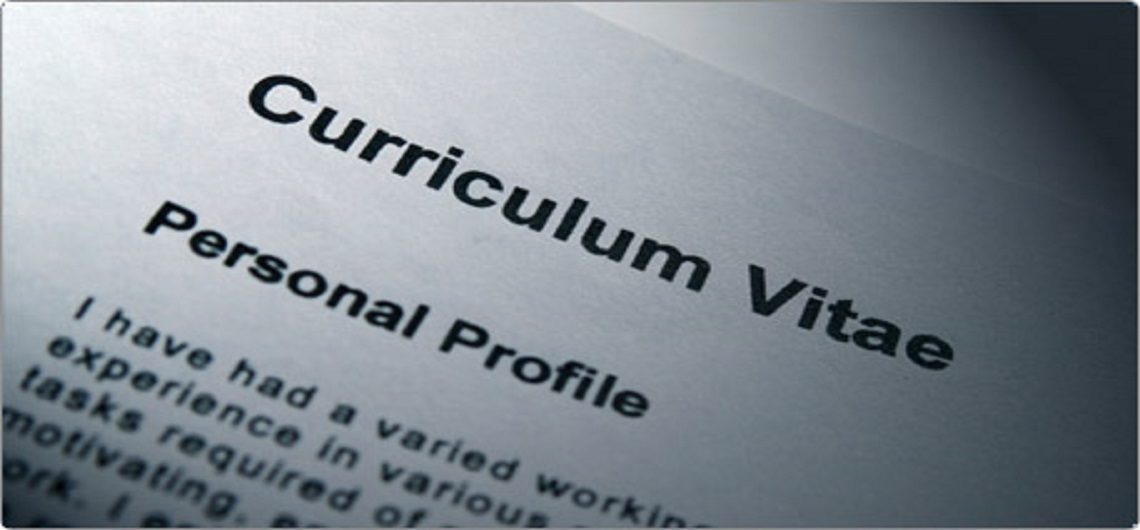by Colm Cavey, Professional Career Consultant.
I am frequently asked; how long should I make my C.V.?
The simple answer is; as short as you can possibly make it.
Before you start to write, review or edit your C.V. just stop and think for a moment who and how it will be viewed
Just imagine a recruiter secures a new assignment and advertises a position online. Typically you will see lots of examples on many of the various online job sites. Do a search for any position and lots will pop up. Others may also be from employers advertising directly and inviting you to submit your C.V.
An interesting little exercise is to stop for a moment and think just what happens to your C.V. once you hit the ‘send’ button on your keypad.
Typically, a recruiter or employer will go into their office on a Monday morning, turn on the P.C. and zzzz-i-p……….. 20, 40, 60 or more applications will load up, all applying for the position on offer. There is nothing unusual about 100 or more applicants for a well sought after type of position.
Now at 9.00 in the morning our friendly recruiter/employer will start the task of viewing all the applications that have come in; a great way to start your day. That person will quickly eliminate those that are not a good match to the job specification. As the day goes on and now reviewing the 78th C.V. even the most resolute professional will be getting tired and watching the clock for lunch time. Then they open your C.V., number 79. The inevitable happens; your C.V. gets 20 seconds from a weary recruiter who then moves on to the next. Your C.V. will be moved into the ‘no good’ folder or if you’re lucky, the ‘maybe’ folder for reviewing later, but it’s unlikely that it will get a second look. More often than not, there will be several other C.V.’s that are good and fill the quota. So the ‘maybe’ file is redundant and won’t get a second look.
There is only one scenario that may be worse than that. Let’s rewind to 9.00 in the morning and the employer turns on the P.C., zzz-i-p and all the applications appear. Then they open their pre- loaded auto search programme and hit the go button to find the top 20 matches.
Now you’re in trouble if you C.V. is not very, very concise, and most importantly containing all the relevant key words that may be used to search for a particular type of applicant for the job on offer. Otherwise, it will be passed by. If and when your C.V. is caught up in the selection process it must be reader friendly, describing your experience and skills in a very ‘instantly easy to read’ format. This means as short as possible
When you have completed your C.V., read it over slowly and carefully and ask yourself, how I could shorten any of the statements I have written.
I often think back to a client I once had who wrote on their C.V.;
“I take over the running of the company when the Managing Director is away on business or on holidays”.
At a glance that seems fine but I consider it a waste of space. For that I suggested that it be edited to read;
Deputised for the M.D. in his absence.
This is the very same message, but just 7 words instead of two lines.
If you adopt this kind of approach to every line you have written on your C.V. you will be surprised at the amount of space you will free up. Free space that you can use for more interesting career highlights which is what a C.V. is supposed to do. More importantly, the employer who is trawling their way through all the applications will grasp the key elements of your C.V. at a glance.
The most important parts of your C.V. are your qualifications, your experience and the skills you have acquired.
When documenting these details don’t think of what you have done or what you have to offer. Think what does the employer want to read? Carefully read the job specification, underline the key requirement and then make a few notes on how you have experience in these areas. Ask yourself exactly what does the employer want and make a note of the main requirement? Carefully trawl through your career history and bring the relevant information from your past to a more prominent position on your C.V.
Sometimes you may find that there are some elements of your career history from a past job are more relevant than your current position. So why not create a “Career Highlights” section on your C.V. Why not put it on your front page? Don’t however, stuff it with irrelevant information. Just three or four single lines with bullet points outlining your key, relevant achievements from the past will do it. In this way they get to jump the queue and get information from further back in your career moved up and onto the top of the front page.
- Bullet point all information and avoid long sentences as far as possible.
- Where possible add an achievement that gives size to a task done, an example being; “increased turnover by €50k per week”. The 50k gives size to the achievement.
- Give most bullet points to the current/last job with lesser points to previous positions held.
- If you were promoted through a company, say so. It shows you must have been good.
- Always keep it simple. Remember the first viewing your C.V. gets will probably be an HR person who is not familiar with the in-depth technical details of a manufacturing process. At all costs, avoid jargon where it’s not needed.
- Assuming you have your C.V. well worded with good information finish it off by giving it ‘eye appeal’. Space it nicely, don’t crowd information on one page and spread it out on the next.
- Never split information on your work with a current or past employer over two pages. Get it all on the one page but don’t break it over two.
- Never, ever go more than two pages on your C.V. unless you have an exceptional career history. Even then think twice. The employer’s tolerance for long, more than necessary narratives will be very limited.
Writing a good C.V. can be tiring and everyone you ask will have a different opinion on what you should say. Listen to what they say, anticipate what the potential employer will be looking for and somewhere in the middle is the information you should impart.
Better still, get professional advice. An experienced career consultant will take an impartial view of your situation and advise on the key information that‘s needed for your circumstances.
Always remember; the only purpose of a C.V. is to; Get you an Interview!
Good Luck











































